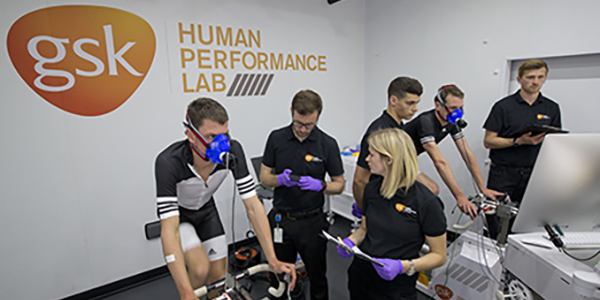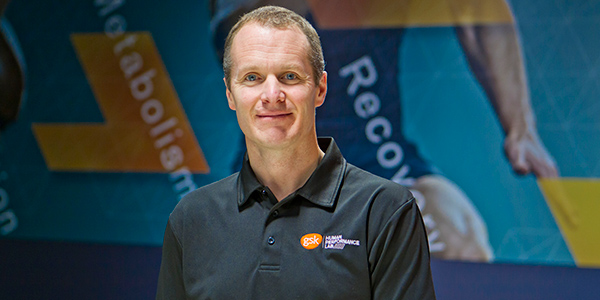Ken's comment on: Extreme adventure
The risks and rewards
Extreme adventure and exploration are by their very nature incredibly high risk pursuits. Not only do they require enormous feats of human endeavour and endurance, they also depend on thorough preparation, and to some extent, the ‘luck of the gods’. Sadly, the world was reminded of the inherent danger of adventure and exploration earlier this year, when British explorer Henry Worsley died just 30 miles short of an historic, first ever, solo crossing of Antarctica.
At the GSK Human Performance Lab we’re privileged to be working with many extreme adventurers. We have the opportunity to support their physical preparation ahead of their challenges and to collaboratively undertake research to better understand the limits of human performance.

A long-term partner at the GSK Human Performance Lab is Richard Parks, who in 2014 became the fastest ever Brit and the second fastest person in history to complete a solo, unassisted and unsupported journey from the coast of Antarctica to the South Pole. Recent articles and webcasts on our work with Richard are available at our Science Community and we’re currently submitting a case study for publication in a scientific journal.
More recently, the Coxless Crew became the first ever female crew and the first crew of four to row across the Pacific. This phenomenal achievement took them from San Francisco to Cairns, covering 8,446 miles in 257 days, aboard their boat and home ‘Doris’. Through our partnership with the Coxless Crew we completed comprehensive physiological and nutritional assessment of the crew before and after the challenge, informed the prescription of training and hydration strategies, and gained valuable insights into the demands of extreme endurance adventure. Not surprisingly, 257 days at sea resulted in quite drastic changes in body composition and we’re currently analysing cognitive and salivary hormonal data collected during the event to examine the stress response to ultra-endurance adventure. We’ll very shortly be publishing an article and podcast to provide insights on this work, so stay tuned to our social media channels (@GSK_HPL) for more details.

It’s both fascinating and rewarding to work with such highly-motivated and gifted individuals, and we’re privileged to play some small part in their incredible achievements. The opportunity extends our understanding of the limits of human achievement. It also provides for exciting and unique research to develop knowledge that can be translated to both high performance sport and healthcare. By examining the hormonal response and changes in cognitive function during extreme adventure, we can establish and elucidate human responses to extreme stress. Consequently, we’ve been able to develop novel methods to monitor training load tolerance and recovery in elite athletes and better understand the impact of everyday health issues (e.g. allergy, acute infection, pain and inflammation) in the wider population. Please visit our Science Community to read more about our research in this field.
What’s next for the GSK Human Performance Lab and our commitment to extreme adventure? Recently, we’ve started supporting Sean Conway – the only man in history to have swum the 900 mile length of Britain. With an impressive record of ultra-endurance challenges, Sean embarks on his “great British adventure” very soon – watch this space for further details and updates.
Henry Worsley, who was so inspired by the early 20th Century explorers Shackleton and Scott, wrote "The relentless struggle of man having to operate at the limit of his capability appealed". As sport and exercise scientists, the appeal is also very real. And whilst it may not drive us to the glaciers or the oceans, it certainly motivates us in our search to better understand and extend the limits of human performance.
Read more about adventures we have supported our partners on via the links below:
Interview with Grand2Grand Ultra team following 170 mile ultra-endurance race
Interview with 2015 Race Across America finisher, Shu Pillinger
Body composition assessments and acclimatisation with adventure Benno Rawlinson
Posted
29/02/2016
Written by

Dr. Ken van Someren
Head of R&D, GSK HPL
Related content
GSK HPL and the Brownlee brothers take their first steps on the Road to Rio


